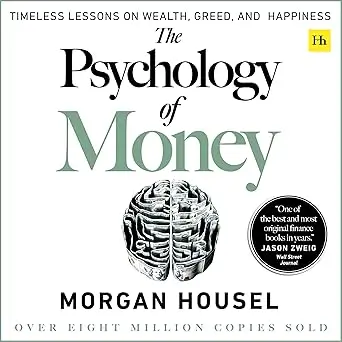Why Everyone Should Understand Compound Interest by Age 25
Albert Einstein allegedly called compound interest "the eighth wonder of the world," adding, "He who understands it, earns it; he who doesn't, pays it." Whether or not Einstein actually said this, the sentiment rings profoundly true.
The Magic of Starting Early
Compound interest is deceptively simple: you earn interest not just on your original investment, but also on all the interest that investment has previously earned.
This creates a snowball effect that becomes increasingly powerful over time. The key ingredient? Time itself.
Example: Consider Sarah, who starts investing just $100 monthly at age 25. Over 30 years, she contributes a total of $36,000, less than many people spend on a single car.
Assuming a 7% annual return, her modest monthly investments grow to approximately $303,000 by age 55.
That means compound interest turned her $36,000 in contributions into over $267,000 in additional wealth.
She earned more than seven times her original investment simply by starting early and staying consistent.
The Cost of Waiting
Every year you delay understanding and harnessing compound interest is a year of exponential growth lost forever.
This isn't about missing out on linear gains, it's about forfeiting the compounding effect that multiplies your wealth over decades.
A $1,000 investment at age 25 could become over $21,000 by age 65 (assuming 7.5% annual returns).
That same $1,000 invested at age 35 only grows to about $8,700. The 10-year delay costs you more than $12,000 on a single thousand-dollar investment.
The mathematics are unforgiving: compound interest rewards those who start early and punishes procrastination exponentially.
Understanding this principle by 25 gives you a 40-year runway to retirement, a timeline that transforms modest, consistent investments into substantial wealth.
Beyond Investment Accounts
While compound interest is most celebrated in investment contexts, its principles extend far beyond stock portfolios and retirement accounts.
Understanding compound interest helps you recognize its inverse effect in debt. Credit card debt compounds against you, turning small balances into overwhelming burdens.
A $5,000 credit card balance at 18% interest, with only minimum payments, could take over 30 years to pay off and cost more than $15,000 in total payments.
By 25, many people are making crucial financial decisions: taking on student loans, buying cars, considering mortgages, and establishing spending habits.
Understanding compound interest helps you evaluate these choices through a long-term lens.
Building Wealth Habits Early
Your twenties are uniquely suited for embracing compound interest because they typically offer the highest capacity for financial risk-taking and the longest time horizon for recovery from setbacks.
You likely have fewer financial obligations, no mortgage, children, or aging parents to support, creating space for aggressive saving and investing.
More importantly, the habits you establish in your twenties often persist throughout life.
Learning to live below your means, automatically investing a percentage of every paycheck, and thinking long-term about financial decisions creates a foundation for lifelong wealth building.
Someone who starts investing $500 monthly at 25 and increases that amount by just 3% annually could accumulate well over $2 million by retirement.
The Psychological Advantage
Understanding compound interest provides more than mathematical benefits, it offers psychological peace of mind.
When you grasp how small, consistent actions compound into significant results, you develop patience with the wealth-building process.
You're less likely to panic during market downturns or chase get-rich-quick schemes because you understand that steady, boring investing typically wins the long game.
This knowledge also helps you make better career decisions. You might choose a job with better retirement benefits over slightly higher immediate pay, or prioritize skill development that compounds your earning potential over time.
Taking Action Today
If you're ready to harness the power of compound interest, start by calculating how your money could grow over time. Use our compound interest calculator to visualize how different investment amounts and timeframes affect your potential wealth accumulation.
Play with the numbers, see how starting today versus waiting five years impacts your results.
The most important step is simply beginning. Open an investment account, set up automatic contributions, and let time do the heavy lifting.
Your 65-year-old self will thank your 25-year-old self for understanding and acting on one of the most powerful forces in finance.
Compound interest isn't magic, it's mathematics. But its effects can seem magical when you give it enough time to work.
The earlier you start, the more miraculous the results become.

